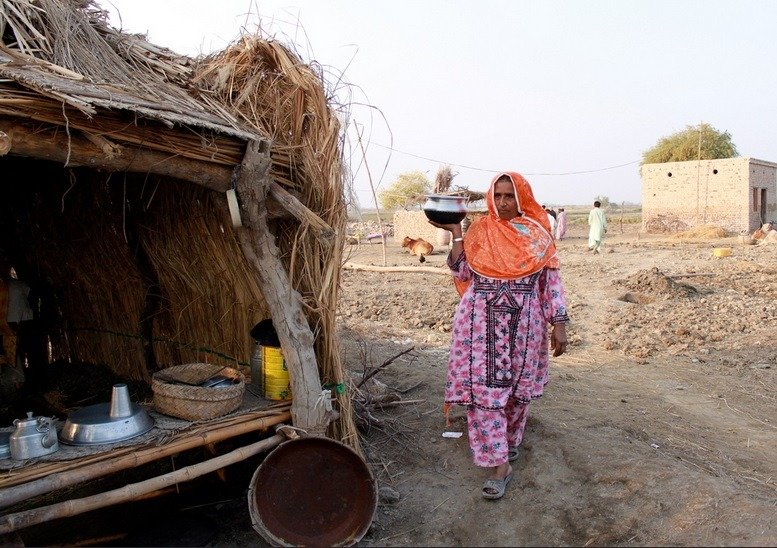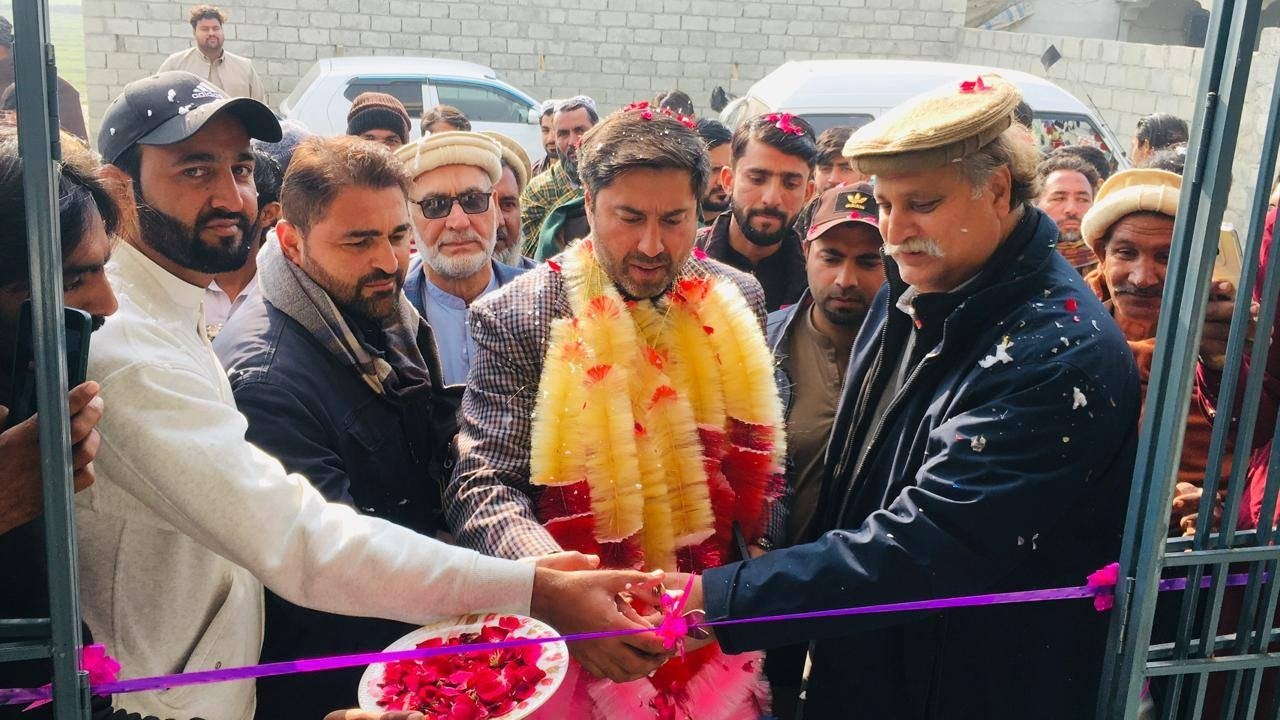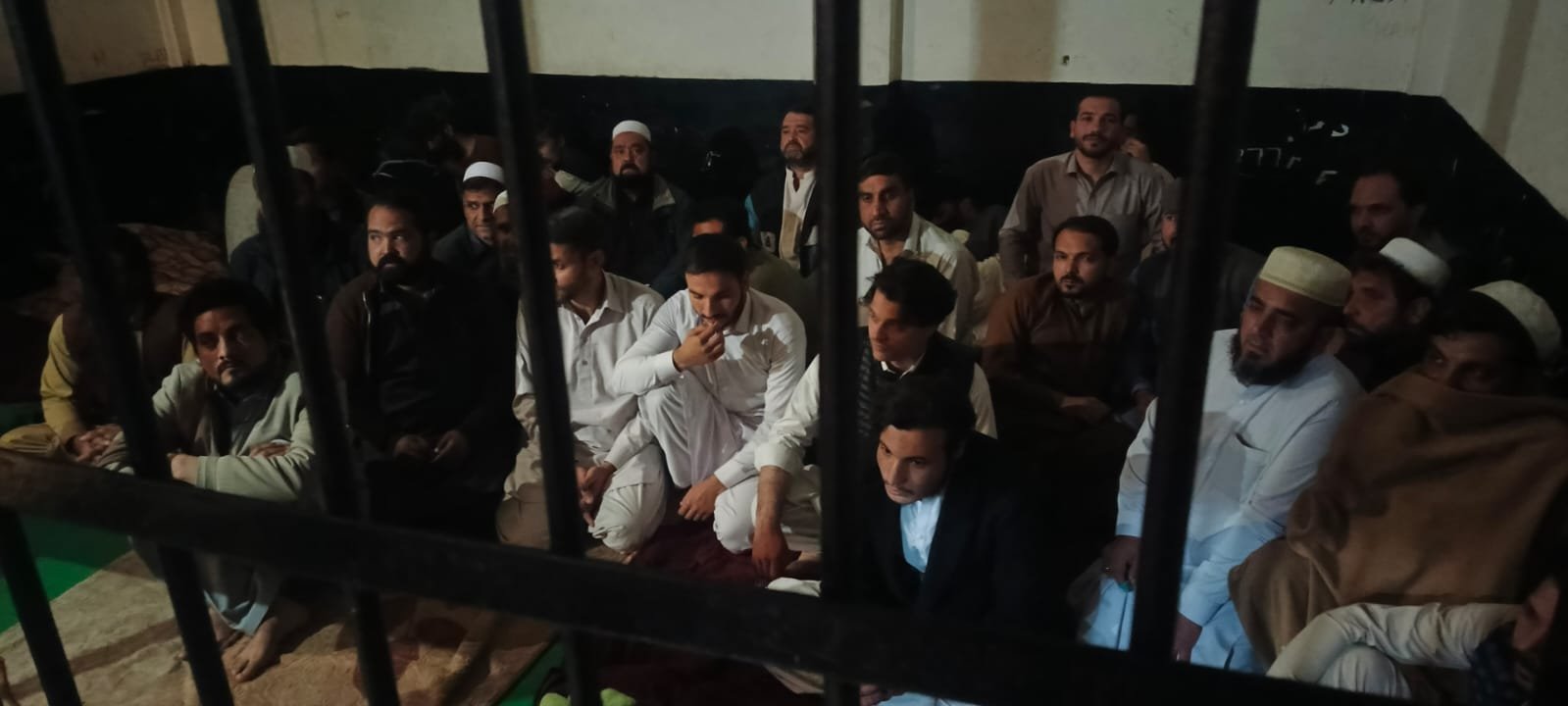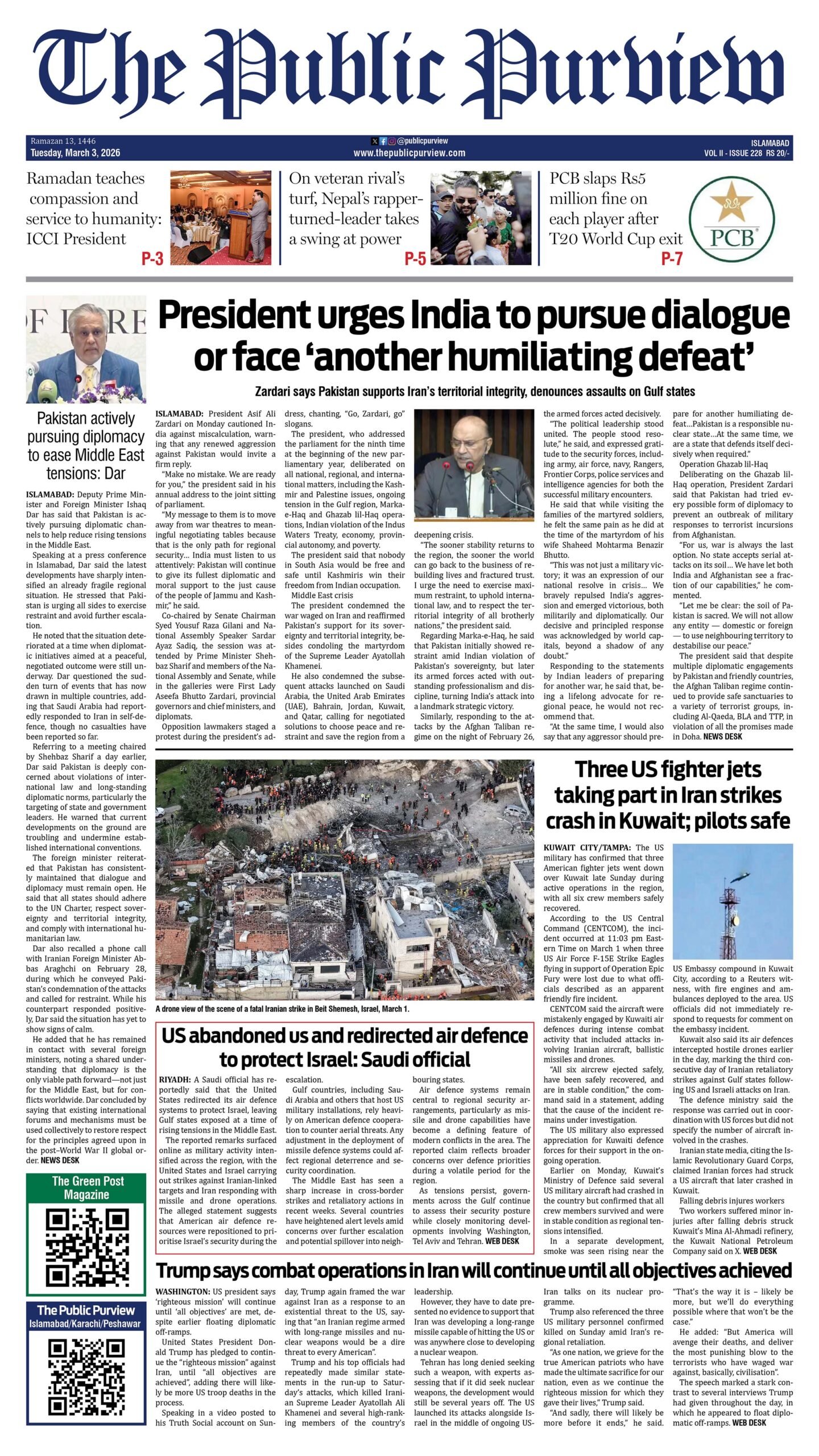
By: Rizwan Tahir Chohan
Swat is one of the most beautiful and peaceful places in Pakistan. But now, climate change is putting this valley in danger. Heavy rains recently caused flash floods in Swat. These floods destroyed homes, roads, hotels, and sadly, took many lives. Among the people who died were tourists who came to enjoy the beauty of Swat but became victims of nature and official carelessness. Swat is located in a mountainous area and is known to be a climate change hotspot. It often faces floods that badly affect local communities and damage roads, bridges, and buildings. Experts have warned about this many times, but the government has not done much to prevent such disasters. Although Pakistan has climate change and disaster plans, they are not properly followed. Even after big floods in 2010, 2022, and now in 2025, no strong system has been built to protect the people of Swat.
After every disaster, the government provides temporary help, but there is no long-term plan to rebuild the area safely. The environment has also been damaged. Trees have been cut down, and buildings have been allowed to be built dangerously close to the Swat River. Now nature is reacting to this destruction. In the recent floods, at least 18 tourists died, including 10 people from one family. Rescue efforts were late and unorganized. Many hotels and guesthouses are built illegally right next to the river. The government did not check or close these buildings before the rains. The tourism department of Khyber Pakhtunkhwa (KP) also has no proper safety system for tourists. There are no safe shelters, no clear evacuation plans, and no trained rescue teams near tourist areas.
Sadly, instead of accepting responsibility, some officials blamed the tourists. But the truth is, the government did not give proper warnings or stop people from going to dangerous places. This disaster has raised serious questions about how tourism is managed and how emergency situations are handled in Swat. There must be early warning systems in local languages and awareness campaigns for both locals and tourists. People need to be informed about weather conditions and how to stay safe. Without this, more lives could be lost in the future. The floods in Swat are a strong reminder that climate change is real, and ignoring it can be deadly. If we don’t take serious steps now, such disasters will happen again and again. Swat is still beautiful, but its people and visitors must be protected by a responsible and active government. This tragedy also sends a message to the tourists to be careful. Climate change has made travel riskier. Before going to places like Swat during the rainy season, check the weather, avoid staying near rivers, and make sure safety measures are in place. Enjoying nature is important, but staying safe should always come first.
To prevent such tragedies in the future, the government, particularly the rescue and disaster management departments must take serious and immediate steps. There is a need for a well coordinated early warning system that functions in real time, especially during the pre-monsoon and monsoon seasons. These alerts should be delivered through SMS, radio, local mosques, and social media in both Urdu and local languages to reach the widest audience. Rescue and civil defense teams should be permanently stationed in high-risk tourist areas during the rainy season equipped with modern gear, boats, and trained personnel. Regular inspections of hotels, guesthouses, and riverside constructions must be enforced, and illegal structures in dangerous zones should be shut down. The KP Tourism Department must develop and implement a tourist safety protocol, including evacuation plans, designated safe shelters, and hazard maps made available to visitors.
Tourists, too, must take responsibility for their safety. Before planning a trip to Swat or any mountainous region, they should always check official weather forecasts, avoid riverside accommodations during the rainy season, and stay informed through credible news sources. Travel during periods of unpredictable weather, especially pre-monsoon should be avoided altogether. In today’s changing climate, enjoying nature must come with awareness and caution. Tourists are also advised to carry basic safety items, such as life jackets, especially when staying near riversides or traveling during rainy seasons. While it may seem unnecessary at first, in flood-prone regions like Swat, such precautions can make the difference between life and death. Travel should always be planned with safety in mind, not just enjoyment.







 Today's E-Paper
Today's E-Paper